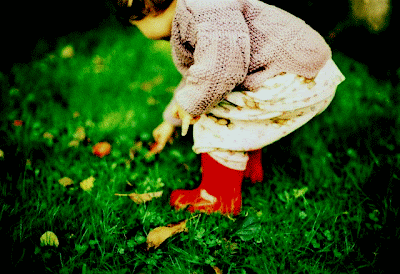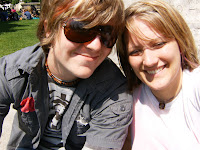Churches seem to be decreasingly useful to the last two or three generations of faith seekers. Why? If these faith people are not in churches, where are they? Where are they spending time, living, being, growing up?
One public space patron had this to say. The question was, “Why do you find yourself so often in small, independent coffee shops and bars?” Answer: “Because it’s like home. I live alone, and staying in [at home] presents a really different reality of environment than going out to do my studying. And sometimes I want to go out not just for a practical reason. Sometimes I go out because I want to see people; my friends, acquaintances or even strangers sometimes.”
“So you might go to the bar without anyone else you know? Why not just stay home?”
“Well, I guess it’s just more inspiring in the places I go to. There’s interesting things to look at. There’s people I might meet who I never knew or people I might see that I haven’t seen in a long time. And there’s always the staff in these places that I sometimes have a relationship with. When I go to the same places over and over it feels like I live there, sort of. It feels like my living room in a way.”
“But why choose these specific places? Why not others? Why do you choose independent places over chains? Why bars and coffee shops over restaurants?”
“I think it’s because of the way they look; they way they’re set up, you know? Like in a chain, you know what to expect and sometimes that’s OK but you don’t look around and get inspired, because you’ve seen all this before. But if you go into an independent place it has the style of the owner or the manager all over in the way things are set up and the way it’s decorated; or the way it sounds, what music is playing, what the lighting is like. I guess this all just means that somehow the person who runs the place had decided what they want the life of this place to be and made it that way. So I get to connect to a real person. And it makes it a better place for me to connect to other real people in the same space at the same time, you know?”
“Can you describe this a little more? What is it about a place that makes it like a living room and not an institution? Is that the right way to ask it?
“Yeah, that’s right. I want things to seem like home and family and not an established, market researched institution. Umm… OK. There’s this place I go to. It’s a coffee shop called the GreenHouse. It’s organic. So already I know something about the owners and their values, even if it’s a small thing. They like to keep things as healthy has possible: people and the earth. Then I go in and see an upright piano in the corner. It’s open for anyone to play if they wish. And I sit in a big chair. It’s like the one in my living room and in the living rooms of most of my friends too. And then I take off my shoes and put my computer on the footstool in front of me. There are lamps and rugs around. I go up to the counter where Ray is cutting turkey. I order some tea and he brings it to me. We have a conversation about school and whatnot before I go back to my chair. I’m reading and writing and people come in and out: a book group from the school next door or a couple of guys drinking coffee after work. And the members of the family who owns the place are in and out too. After a while, Cybil, Ray’s wife starts baking for the next day. And the place begins to smell like the house smells when mom starts supper. So there I sit in my living room chair smelling supper from the kitchen and conversing mildly with people who come in and out of the house as work and school get done. See what I mean? It’s like home.”
As I listen to this unfold, I’m thinking about the idea of home and noting that these places, where so many are spending their time, are more like “home” than our own residences. Why is that? And why is it that we are so driven to find home? This idea of creating public spaces that are like our living rooms, intimate and familiar, is based on the understanding that we want to belong. Like the famous lyrics “Where everybody knows your name.” We, as a whole culture, aren’t as convinced about the value of independence and self-sufficiency as we once were. This mentality is leaving us lonely. It’s not fulfilling our needs for connection and intimacy. So, new kinds of places are becoming meaningful to us. The answer to the question, “Where are these postmodern generations?” is… out. Not at home.
In her essay, contained in Growing Up Postmodern, Sharon Daloz Parks talks about the deep rhythms of the young person’s soul that pulse between pilgrimage and home. These ideas used to by closely related. Citizens of a “home” would press out on a pilgrimage only to return home with “gifts, blessing and wisdom.” But we have since lost this connection as we have, culturally, a dwindling connection to place and “home”. Parks says, “Particularly since the Enlightenment, we have been keenly aware of the limitations of our knowledge – especially our knowledge of God, Truth, Ultimate Reality. We have become poignantly aware of the relativized and partial character of truth. Our understanding is always incomplete – and, hence, we have a consciousness of always needing to press further in an ongoing intellectual and spiritual journey toward but never quite arriving in our quest for truth and wholeness.” So, in essence, today we are on pilgrimages our entire lives. We are constantly swinging, sometimes gently, sometimes not so gently, between the press forward for more knowledge, experience, understanding, truth and wholeness and our desperate search for belonging and home in which to flourish in order to make this pilgriming possible and meaningful.

 i walked by the river with a scarf and a speedway coffee, listening to the September playlist from a friend, as instructed by the... well, instructions on the email about said playlist. and i decided to stop and look over the rail for awhile at the swarm of fisherman in their waders in the river. and a little, black, BMX biker boy came up and leaned on the rail right next to me. our elbows were touching. and he said, slightly audibly above the sound of the music in my head, "i wish i had a fishing pole." and i said, "you don't?" him, "No. Do you?" me, "Nope." he told me he wishes he could just pick up all the water in his hand and hold it so the fishermen could get all the fish without having to stand in the water all day. "like a superpower?" i said "yeah. and i would do it from inside the water, you know, with telekinesis!" and i said cool. then i asked him if he went to school today and where and did he like it. he doesn't hate school. he doesn't love it either. then we commented on the whole, full grown tree that had floated down stream and gotten stuck by the spillway. you can see all the roots. and we decided it was cool and that we had never seen the roots of a full grown tree just out in the open air like that. then we talked about the algae in the river on the rocks and about seaweed. and he said "I think snails eat algae" me, "how do you know?" him, "now i know you don't watch sponge bob but, on one episode they all got covered in this green stuff and i think it was algae and then a snail ate it off them." me, "actually i do watch sponge bob." and then we threw rocks and sticks in the river for a long time. we watched the sticks get sucked down by the current at the bottom of the spillway and we watched the ripples of the rocks we threw, stick in circles in the water. and the circles followed the spillway down on the surface of the water, into the foam at the bottom. and each time it happened we looked at each other with raised eyebrows and muppet smiles as if we just discovered something that seems like impossible physics. he asked, "how old are you?" "25" i said. "how old are you?" "10" he said.
i never finished the playlist.
i walked by the river with a scarf and a speedway coffee, listening to the September playlist from a friend, as instructed by the... well, instructions on the email about said playlist. and i decided to stop and look over the rail for awhile at the swarm of fisherman in their waders in the river. and a little, black, BMX biker boy came up and leaned on the rail right next to me. our elbows were touching. and he said, slightly audibly above the sound of the music in my head, "i wish i had a fishing pole." and i said, "you don't?" him, "No. Do you?" me, "Nope." he told me he wishes he could just pick up all the water in his hand and hold it so the fishermen could get all the fish without having to stand in the water all day. "like a superpower?" i said "yeah. and i would do it from inside the water, you know, with telekinesis!" and i said cool. then i asked him if he went to school today and where and did he like it. he doesn't hate school. he doesn't love it either. then we commented on the whole, full grown tree that had floated down stream and gotten stuck by the spillway. you can see all the roots. and we decided it was cool and that we had never seen the roots of a full grown tree just out in the open air like that. then we talked about the algae in the river on the rocks and about seaweed. and he said "I think snails eat algae" me, "how do you know?" him, "now i know you don't watch sponge bob but, on one episode they all got covered in this green stuff and i think it was algae and then a snail ate it off them." me, "actually i do watch sponge bob." and then we threw rocks and sticks in the river for a long time. we watched the sticks get sucked down by the current at the bottom of the spillway and we watched the ripples of the rocks we threw, stick in circles in the water. and the circles followed the spillway down on the surface of the water, into the foam at the bottom. and each time it happened we looked at each other with raised eyebrows and muppet smiles as if we just discovered something that seems like impossible physics. he asked, "how old are you?" "25" i said. "how old are you?" "10" he said.
i never finished the playlist.












































